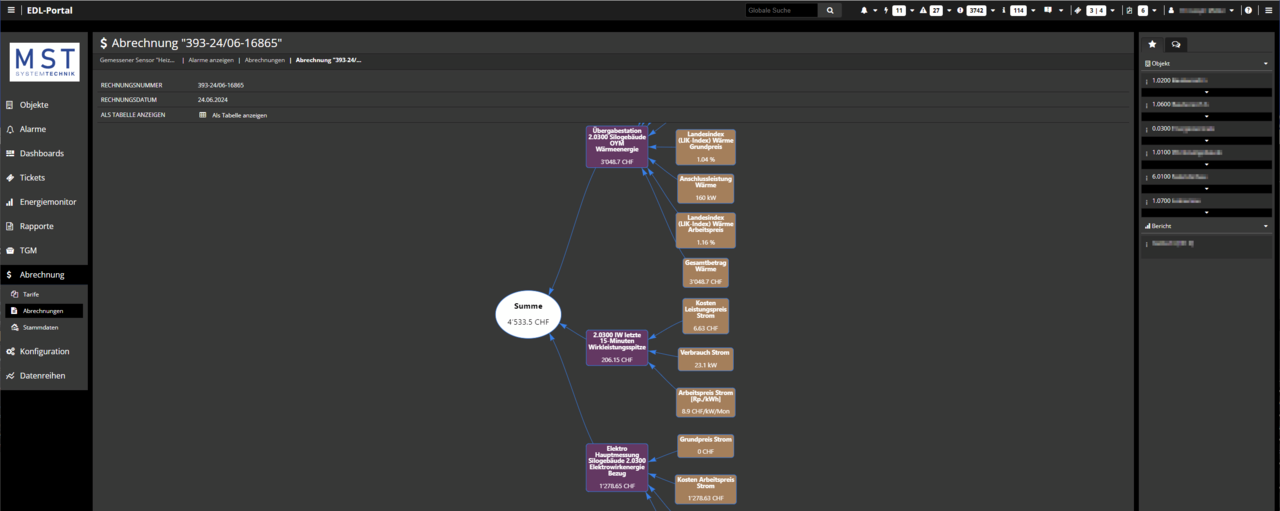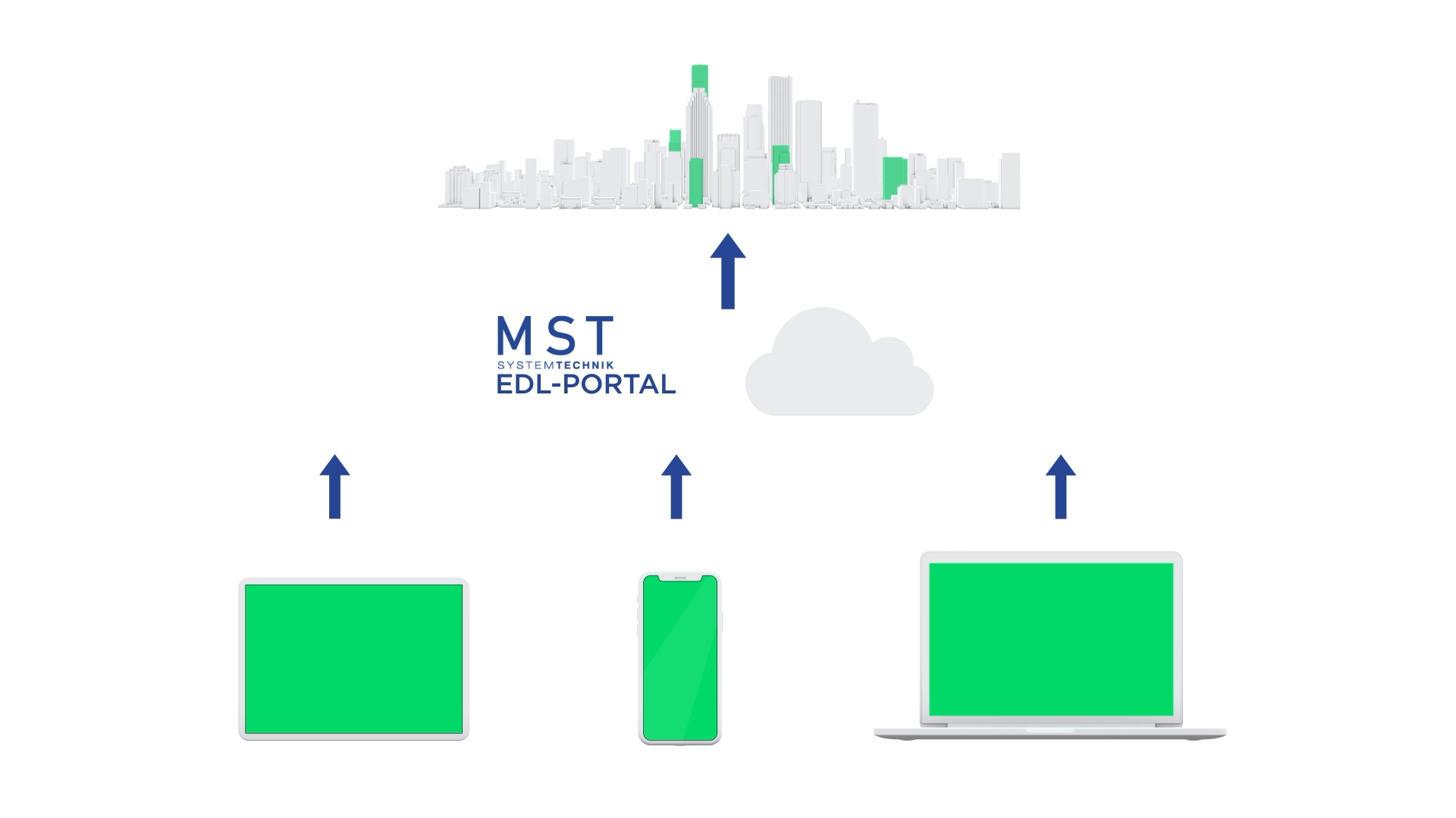
Service charge settlement and invoice verification
Service charge billing and invoice verification are important aspects of facility management and are optimized by the EDL portal.
1. Importance of service charge settlement and invoice verification
The service charge settlement comprises the recording and settlement of a building's operating costs, including energy costs, maintenance costs and other expenses. Invoice verification ensures that the calculated costs are correct and comply with the agreed contracts and legal regulations. Integration with the EDL portal automates and optimizes these processes.
2. Main components of service charge settlement and invoice verification in the EDL portal
2.1. Data integration
- The EDL portal integrates seamlessly with operational data collection systems, including energy consumption, maintenance logs and supplier invoices.
- It enables the automatic collection and consolidation of data from various sources for integrated billing.
2.2. Cost analysis and allocation
- The portal offers functions for analyzing and allocating costs to individual users, departments or rental units.
- The automated allocation of costs ensures transparent and fair distribution.
2.3. Invoice verification and validation
- The EDL portal automatically checks invoices for accuracy and completeness.
- It compares the calculated costs with the recorded consumption data and warns of deviations or discrepancies.
2.4. Reporting and transparency
- The portal generates detailed reports on operating costs, consumption patterns and billing data.
- These reports provide transparency and enable well-founded decision-making for facility management.
3. Service charge settlement and invoice verification functions in the EDL portal
3.1. Automated data acquisition
- The EDL portal automatically records consumption data from energy meters, sensors and other sources.
- It aggregates and consolidates the data for holistic analysis and billing.
3.2. Consumption analysis and benchmarking
- The portal offers tools for analyzing energy consumption and comparing it with benchmarks or previous year's values.
- Users can identify consumption trends and recognize potential for optimization.
3.3. Automated billing
- The EDL portal automates the billing process and generates detailed service charge statements.
- It takes into account contract conditions, tariffs and individual usage profiles for precise cost allocation.
3.4. Monitoring and alerting
- The portal monitors energy consumption and warns of unusual or excessive consumption.
- It enables problems to be identified at an early stage and appropriate cost-saving measures to be initiated.
4. Advantages of service charge settlement and invoice verification in the EDL portal
4.1. Cost savings
- The automated recording and analysis of operating data can reduce costs and identify potential savings.
- Incorrect billing and excessive costs are avoided.
4.2. Transparency and traceability
- The EDL portal provides transparency about cost distribution and enables detailed tracking of billing data.
- Users gain insight into their consumption data and can better control their costs.
4.3. Increased efficiency
- The automation of billing processes leads to more efficient management of operating costs.
- Employees can concentrate on strategic tasks instead of dealing with manual accounting processes.
4.4. Compliance and accuracy
- The EDL portal ensures compliance with contractual conditions, tariffs and legal regulations.
- Automated invoice verification minimizes errors and ensures the accuracy of invoices.
Conclusion
Service charge billing and invoice verification are crucial processes in facility management that are optimized by the EDL portal. This system offers automated recording, analysis and billing of operating costs, resulting in cost savings, increased efficiency and transparent management

